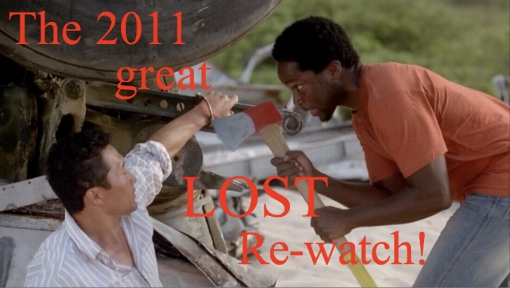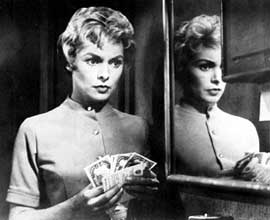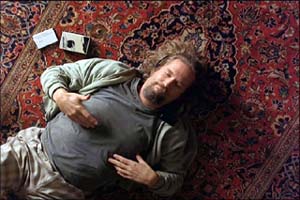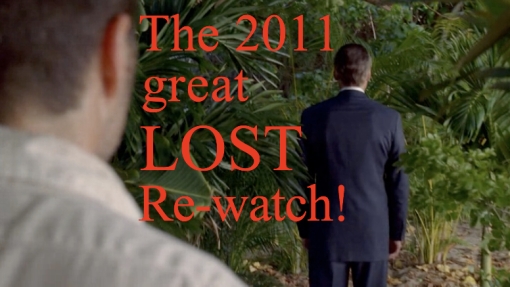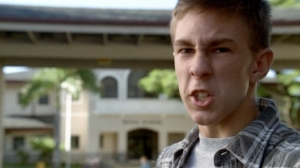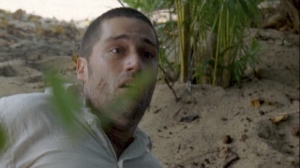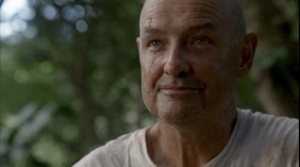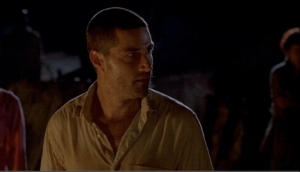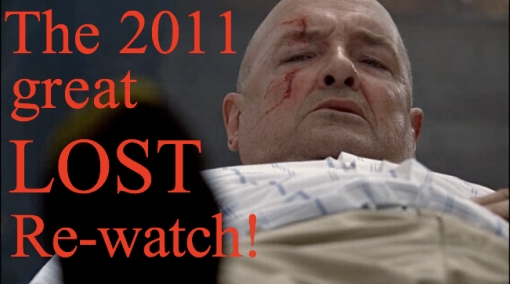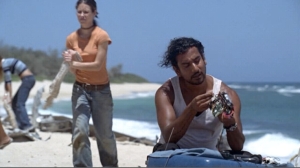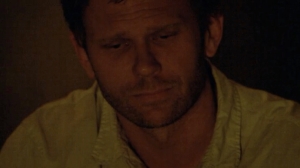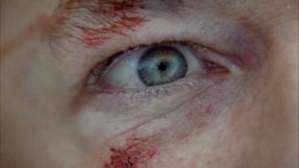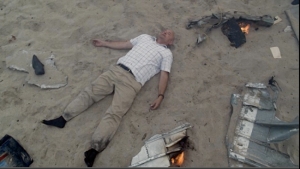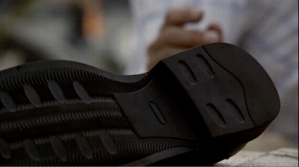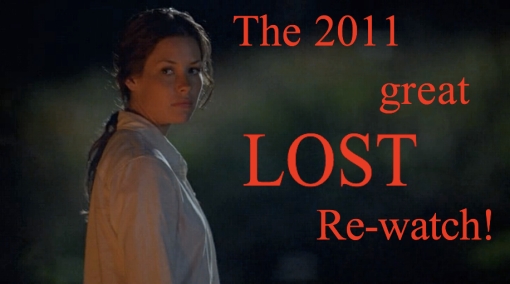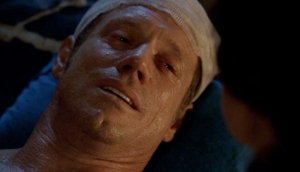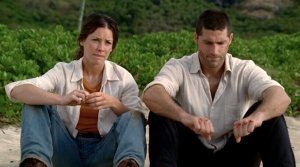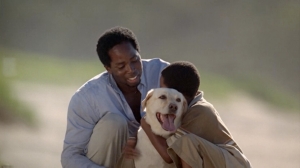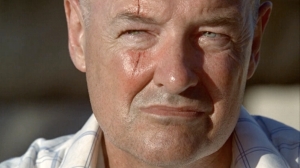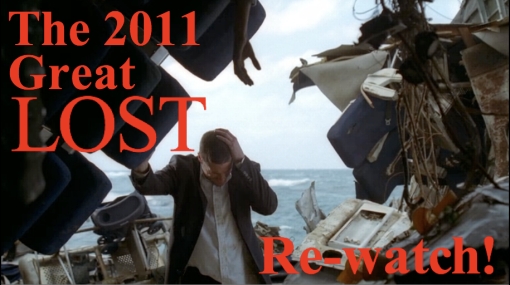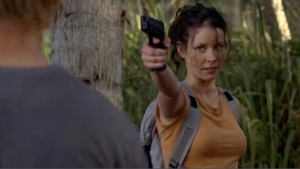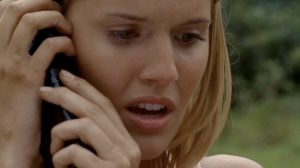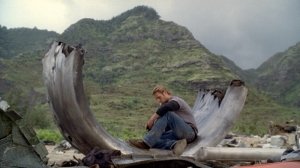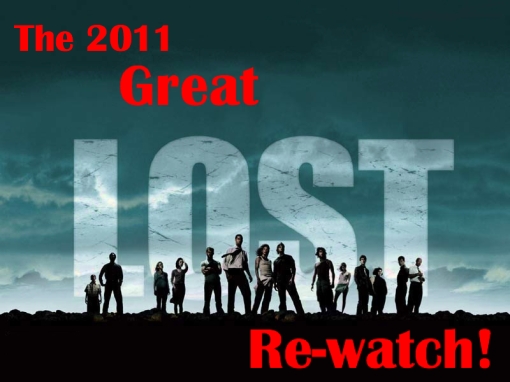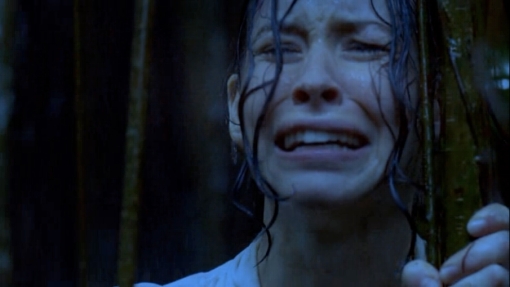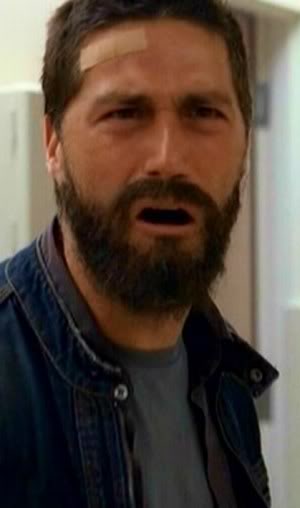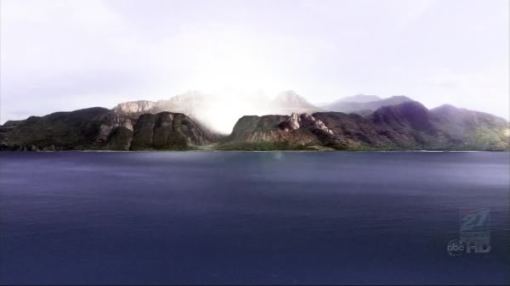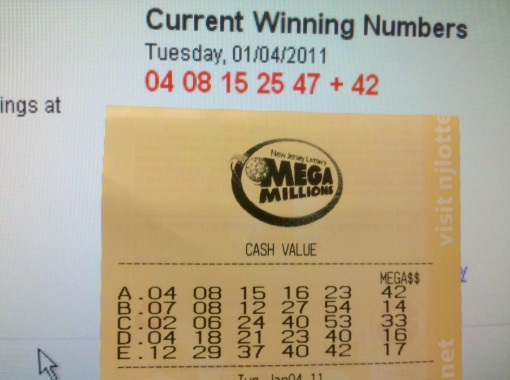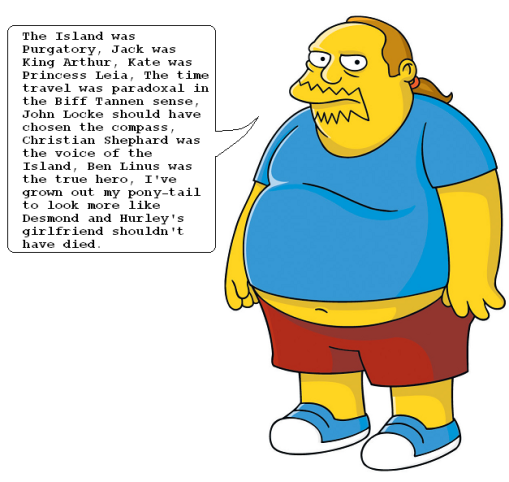And so we get to one of my favorite dysfunctional couples on TV, Jin and Sun. This episode continues the eye-opening Motif, but this time with Sun opening her eye in close up as she looks on at her husband fishing for their daily meal. But then, what’s that? She looks off to the right at Jack and Kate who are preparing to hike up to the caves…. Sun seems to understand them? But how is that possible, and why would she hide her English skills? This is a truly eye-opening moment for the audience.
I’d like to take a moment and point out that the production team (Writers, Directors, Producers) were extremely daring to have two characters like Jin and Sun as primary protagonists on a mainstream show, not because of their nationality, but because they spoke their characters’ native tongue on the show. American TV is too often close-minded to the fact that there are many nationalities besides Californian (Which is a tall, toned, tanned, US West Coast creature) and Lost strove to explore diversity even as it cut its characters off from the rest of the world. Bravo!
This was a transitional episode. A lot happens, but it is really sort of fragmented. We get a part of Michael’s NYC attitude, a splash of Jin’s frustration, some Jack and Kate flirtations, and a Charley revelation. While the Jin/ Sun flashback storyline is integral to their development, the on-island story was really just filling in a few blanks, wrapping up a few loose ends from the last few episodes, and planting a few new ideas.
The subtleties are one of the things I love about this show. There was a teeny tiny moment which was very telling about Jin’s character during a flashback. It was when he exits Sun’s home after asking for her hand. He very naturally misleads her for a moment, making her believe that the meeting went poorly. This masking of himself will become invaluable as he slowly becomes swallowed by the dark and dirty deeds that Sun’s Father will have him performing. Like a superhero, Jin has assumed an alter-ego. This alternate persona will work for Sun’s father and do what needs to be done to earn her hand and love. The problem is that this new Jin, created out of necessity, will encroach upon the nice sweet boy persona that Sun fell in love with. Sun, taking a cue from her husband, will create an alter ego for herself. She will create a person full of hope and new beginnings who learns English in secret. This person will plan to run away from her father and the man she on occasion loves but simultaneously grows to fear.
There was a wonderful use of a Hitchcockian plot device in this episode, known as a MacGuffin (http://en.wikipedia.org/wiki/MacGuffin). A MacGuffin is plot element that drives a work forward, but loses importance as the story continues. It can really be anything. It simply has to be something that the characters desire, causes conflict, reveals character and motivations. It is simply a story catalyst. To name a few MacGuffins in Hitchcock’s films:
The Secret Plans in the 39 Steps
The Microfilm in North by Northwest
A few more modern MacGuffins:
The briefcase in Pulp Fiction
The Rimbaldi artifacts on the show Alias.
In this episode of Lost, the MacGuffin is the Rolex. The watch serves as the catalyst that sets all the episode’s conflicts in motion, but loses importance in favor of the character developments and their interpersonal relationships.
Please enjoy this humorous Hitchcock explanation to Francois Truffaut of what a MacGuffin is:
It might be a Scottish name, taken from a story about two men in a train. One man says “What’s that package up there in the baggage rack?”, and the other answers “Oh, that’s a MacGuffin”. The first one asks “What’s a MacGuffin?”. “Well”, the other man says, “It’s an apparatus for trapping lions in the Scottish Highlands”. The first man says “But there are no lions in the Scottish Highlands”, and the other one answers “Well, then that’s no MacGuffin!”. So you see, a MacGuffin is nothing at all. – From Hitchcock/ Truffaut
And here is a great clip from an interview where Hitch explains how to handle actors, editing, suspense, and suitcase bombs. Enjoy!
